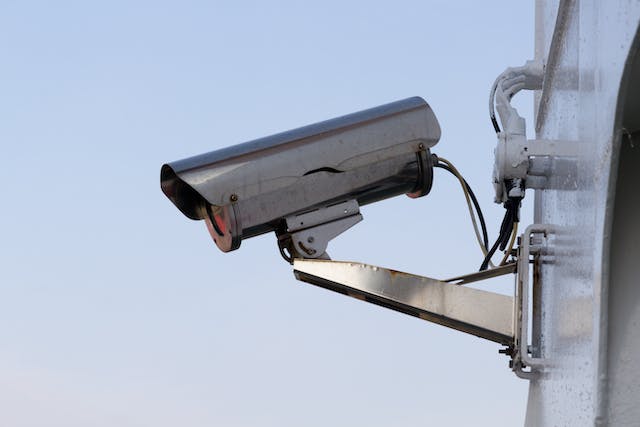As a landlord, protecting your property from unwanted intruders is a crucial aspect of maintaining its value and ensuring the safety of your tenants. Trespassing can lead to various issues, ranging from property damage to potential legal liabilities.
Understanding the laws surrounding trespassing and knowing how to handle such situations effectively can save you time, money, and stress.
In this guide, Blue Door Realty will tell you everything you need to know about trespassers and keeping your rental safe.
What is Trespassing?
Trespassing occurs when someone enters or remains on your property without permission. This can include:
- Entering Land or Buildings Without Consent: This is the most common form of trespassing, where someone enters your property without your explicit permission.
- Remaining on Property After Permission is Withdrawn: If you have previously allowed someone to enter your property but later ask them to leave and they refuse, they are trespassing.
- Failing to Adhere to Conditions of Access: If you allow someone onto your rental property under specific conditions and they violate those conditions, they may be considered trespassers.
Legal Consequences of Trespassing
In general, trespassing is considered a civil offense, but it can escalate to a criminal offense in certain situations, such as when the trespasser damages property or refuses to leave when asked.
Civil Trespassing
Civil trespassing cases typically involve disputes between property owners and trespassers. As a landlord, you can take legal action against a trespasser by:

- Seeking an Injunction: You can request a court order that prevents the trespasser from entering your property again.
- Claiming Damages: If the trespasser caused any damage to your property, you can seek compensation for repair costs.
Criminal Trespassing
Criminal trespassing involves more serious offenses and can lead to arrest and prosecution. Factors that can elevate trespassing to a criminal offense include:
- Intent to Commit a Crime: If the trespasser enters your property with the intention of committing a crime, such as theft or vandalism.
- Aggravated Trespass: This occurs when the trespasser threatens or uses violence.
- Repeated Trespassing: If the same individual repeatedly trespasses on your property despite warnings.
Preventing Trespassing
Preventing trespassing is always preferable to dealing with its consequences. Here are some effective strategies to deter trespassers:
Physical Barriers
- Fencing: Installing a sturdy fence around your property is one of the most effective ways to deter trespassers. Make sure the fence is high enough to be a deterrent and consider adding a locked gate.
- Signage: Clearly marked “No Trespassing” signs can serve as a legal warning to potential intruders. Ensure signs are visible from all entry points.
- Lighting: Adequate lighting, especially around entry points, can deter trespassers by making it harder for them to go unnoticed.

Surveillance and Monitoring
- Security Cameras: Installing security cameras around your property can act as a strong deterrent and provide evidence if a trespassing incident occurs.
- Alarm Systems: Modern alarm systems can alert you and law enforcement if someone attempts to enter your property without permission.
- Regular Inspections: Conduct regular inspections of your property to ensure there are no vulnerabilities that trespassers could exploit.
Community Involvement
- Neighborhood Watch: Encourage tenants to participate in a neighborhood watch program. A vigilant community is often the best defense against trespassing.
- Communication: Maintain open lines of communication with your tenants and neighbors. They can alert you to any suspicious activity.
Handling Trespassers
Despite your best efforts, you may still encounter trespassers on your property. Here’s how to handle such situations:
Assess the Situation
- Safety First: Always prioritize your safety and the safety of your tenants. Avoid confrontations if possible.
- Observe and Document: Take note of the trespasser’s description, actions, and any potential vehicle information. If safe, take photos or video evidence.
Take Immediate Action
- Verbal Warning: If it is safe to do so, ask the trespasser to leave your property immediately. Be firm but non-confrontational.
- Contact Authorities: If the trespasser refuses to leave or if you feel threatened, contact local law enforcement. Provide them with all relevant information and evidence.

Follow Up
- File a Report: Even if the trespasser leaves, file a report with the police. This creates a record of the incident and can be useful if the trespasser returns.
- Notify Tenants: Inform your tenants of the incident and remind them of any safety protocols they should follow.
Legal Steps to Take
If trespassing becomes a recurring issue, you may need to take further legal action:
- Consult an Attorney: Seek legal advice to understand your rights and the best course of action.
- Send a Cease and Desist Letter: Have your attorney send a formal letter to the trespasser warning them to stop entering your property.
- File for an Injunction: If the problem persists, you may need to seek a court order to prevent the trespasser from entering your property.
Understanding Your Rights and Responsibilities
Rights
- Exclusivity: You have the right to exclusive possession of your property.
- Protection: You can take legal steps to protect your property from unauthorized entry.
Responsibilities
- Reasonable Force: You can use reasonable force to remove a trespasser, but excessive force can lead to legal consequences for you.
- Clear Boundaries: Ensure your property boundaries are clearly marked and maintained to avoid any confusion about trespassing.
Conclusion
Dealing with trespassers is an unfortunate but sometimes inevitable aspect of being a landlord. By understanding the legal framework, taking preventive measures, and knowing how to respond effectively, you can protect your property and ensure the safety of your tenants.
To effectively prevent trespassers, it’s recommended to work with a professional property manager who can religiously inspect the property and keep it safe and protected.
Property managers also know how to handle trespassers legally. If you need help, contact one of our experts at Blue Door Realty and we will be happy to assist you!

